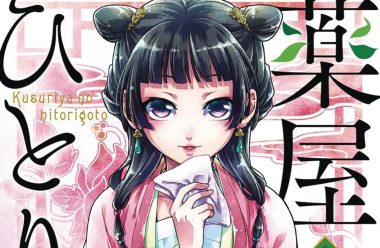Japanese porn site sees large influx of AI-generated art and mandates them to be labeled as such

Ever since AI image generation services have begun to appear, debates regarding AI artwork on social media in Japan grow more animated each and every day. In particular, the launch of NovelAI Diffusion, an AI art generator capable of creating high-quality 2D illustrations, earlier this month has caused a rapid increase in the amount of AI-generated works available on Japanese sites that sell digital content.
In response to this new trend, a number of sites have begun making new policies regarding AI-generated works.
FANZA makes “AI-Generated” tag mandatory
For example, Japanese adult contentsite FANZA has created guidelines aimed at users who are selling AI-generated content, as reported by a number of users on Twitter.
According to the new guidelines, any AI-generated content on FANZA must now include the “AI-Generated” tag. Additionally, users are also required to state within the product description whether an AI-generation service has been used and to include the name of that service. FANZA also noted that these new guidelines may be updated in the future and explained that they have been put in place in order to create an environment where users will know if they are purchasing AI-generated content.
In fact, of the 54 illustration collections put up for sale on October 12, 32 were listed as having been created with AI, most of them using NovelAI Diffusion.
The new FANZA Doujin products put on sale today.
I’ve counted 32 out of 54 as having been created with AI.
DLsite has suspended sales of all AI-generated content
DLsite, another Japanese digital content site, has also provided information regarding the way it intends to handle AI-generated works. DLsite states that because there are many vague and uncertain elements surrounding the advancement of AI technology, instead of introducing overly excessive regulations now, it will take a wait-and-see approach, making decisions based on how the situation changes in the future.
The site further explains that there needs to be a straightforward way to determine if something is an AI work and is making preparations in order to provide a service that is easy to use. As a result, it has decided to temporarily suspend sales of all AI-generated content until preparations are complete.
Skeb is expected to strengthen policies regarding AI illustrations
Skeb is a Japanese commission platform where users can pay creators to make illustrations or voicework based on their requests. Since the site first launched in 2018, it has maintained a policy of only accepting illustrations and manga drawn by the creators themselves and prohibits any illustrations not directly drawn by their creators. Skeb founder @nalgami made it clear on Twitter that this policy extends to AI-generated images.
Furthermore, some Skeb creators have reported that when delivering a finished work, they must now confirm that it has not been AI-generated.
Skeb also posted a tweet regarding new functionality that will be implemented in the coming days to combat issues related to AI technology:
3. AI countermeasures
In order to protect against Skeb content being used by third parties for AI learning material in the future, we are strengthening measures against scraping and bots, as well as obfuscating source code and images.
Based on this, it appears that Skeb will stick to its restrictive stance on AI illustrations.
Niconico excludes AI-generated content from its monetization program
Japanese video-sharing community service Niconico has announced that it does not plan to enforce any restrictions on using AI in the content creation process or on the posting of AI-generated content itself.
However, content that is created via any tools that create output automatically, whether using AI technology or not, and is posted “without change” is excluded from the site’s creator monetization program. This is because it was deemed to conflict with the purpose of the program, which is to support the activities of creators. If the AI-generated content is only incorporated as one part of a creator’s finished work, then that work can still be monetized without any issues.
As you can see, the growth of AI image generation services goes hand in hand with an increase of cases that cannot be dealt with by existing rules or terms of use. There are many users on social media in Japan who have voiced their desire to be able to determine whether content has been created with AI. These developments seem to have prompted a number of sites to take quick action in order to provide improved services that can meet the changing needs of users.
There are still many businesses that are taking a cautious approach when handling creative works that make use of AI technology, and the debate over AI illustration will continue to rage on. It seems that both the people on the management side of services that deal with such content and the people who use those services will have to keep an eye on how the situation evolves in the future.
Written by. Marco Farinaccia based on Len Aoi’s original Japanese article




